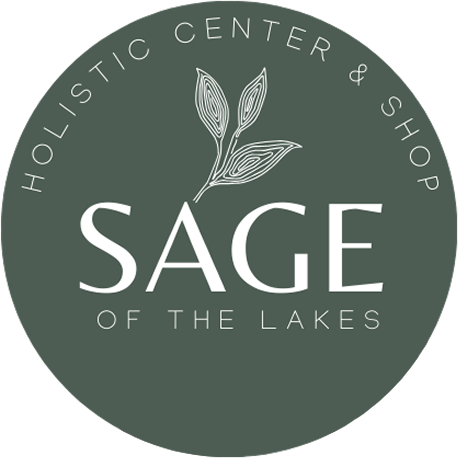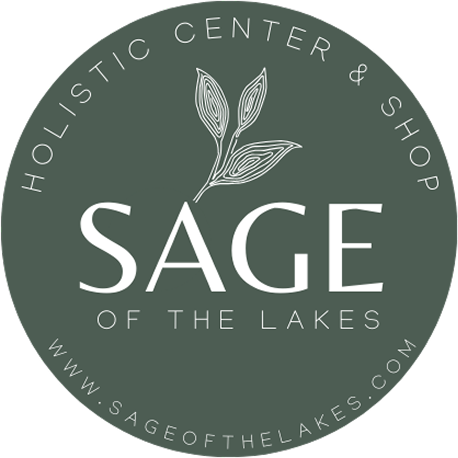Holistic Health and Wellness: A Complete Guide to Mind-Body-Spirit Integration
In a world where healthcare often focuses on treating isolated symptoms, holistic health and wellness offers a revolutionary approach that considers you as a complete person; mind, body, spirit, and emotions working together as an interconnected system. Rather than simply addressing what's wrong, holistic health practitioners focus on optimizing your overall well being through comprehensive care that honors the profound connections between all aspects of your life.
This integrated approach to health and wellness has gained significant momentum in recent years, with nearly 30% of adults in the United States now using some form of complementary and integrative health approach. The growing interest reflects a fundamental shift toward prevention, empowerment, and treating the whole person rather than just physical symptoms.
In this comprehensive guide, you'll discover the core principles of holistic wellness, explore evidence-based practices that can transform your health journey, and learn how to build a personalized approach that aligns with your unique needs and goals.
Understanding Holistic Health and Wellness
Holistic health represents a fundamental departure from conventional medicine's traditional focus on disease and symptom management. At its core, holistic medicine recognizes that optimal health emerges from the dynamic balance and integration of physical, mental, emotional, spiritual, and social dimensions of wellness.
The World Health Organization's definition of health as "a state of complete physical, mental and social wellbeing and not merely the absence of disease or infirmity" aligns perfectly with holistic health principles. This approach acknowledges that a person's life extends far beyond their physical symptoms, encompassing their relationships, environment, beliefs, and life circumstances.
Key Differences from Conventional Medicine
While conventional medicine excels at diagnosing and treating acute conditions through standardized protocols, holistic approaches offer several distinctive advantages. Holistic health treats the whole person rather than focusing on specific symptoms or diseases. It emphasizes prevention and lifestyle modifications instead of being primarily reactive in its treatment approach. The holistic model integrates conventional and alternative medicine, positioning the patient as an active participant in their healing journey rather than a passive recipient of care. Most importantly, holistic practitioners address root causes of illness rather than simply treating symptoms.
The Philosophy of Root Cause Healing
Holistic health practitioners spend considerable time understanding the underlying causes of illness rather than merely treating symptoms. This might involve exploring factors such as chronic stress and its impact on immune function, nutritional deficiencies affecting mental health, environmental toxins contributing to physical ailments, emotional trauma manifesting as physical pain, and social isolation affecting overall wellness.
By addressing these root causes, holistic approaches often achieve more sustainable healing outcomes and help prevent future health challenges.

Core Principles of Holistic Wellness
The foundation of holistic health and wellness rests on several interconnected principles that guide both practitioners and patients toward optimal health outcomes.
Person-Centered Care and Patient Empowerment
Unlike traditional healthcare models where doctors make decisions for patients, holistic medicine emphasizes collaborative relationships. Healthcare providers work as guides and educators, supporting clients in making informed decisions about their treatment options. This empowerment extends to education about self-care practices, nutrition, stress management, and lifestyle modifications that support long-term wellness.
Holistic health practitioners recognize that each person brings unique circumstances, preferences, and healing capacities to their health journey. Treatment plans are personalized to honor individual beliefs, cultural backgrounds, and life situations.
Prevention-Focused Approach
Prevention forms the cornerstone of holistic wellness philosophy. Rather than waiting for disease to develop, holistic approaches emphasize nutritional optimization through whole foods and targeted supplementation, regular physical activity tailored to individual capabilities and preferences, stress management techniques including meditation, yoga, and tai chi, environmental health considerations like air quality and toxic exposures, and social connection and community support systems.
Studies consistently show that holistic wellness participants report higher perceived wellbeing scores across emotional, physical, and social dimensions compared to those receiving conventional care alone.
Integration of Treatment Modalities
Modern holistic health successfully bridges the gap between conventional medicine and complementary therapies. This integration might include combining chemotherapy with acupuncture and nutritional therapy for cancer patients, using both medication and herbal medicine for mental health support, integrating surgical procedures with massage therapy and guided imagery for recovery, and pairing pharmaceutical treatment with therapeutic touch and meditation for pain management.
Recognition of Interconnection
Holistic practitioners understand that disruptions in one area of health inevitably affect others. For example, chronic pain might lead to depression, which then impacts sleep quality, immune function, and social relationships. By addressing multiple dimensions simultaneously, holistic approaches often achieve better outcomes than single-modality treatments.
Natural Healing and Body Wisdom
Holistic medicine recognizes the body's innate healing power and works to support these natural processes rather than override them. This might involve supporting immune system function through nutrition and lifestyle practices, using gentle therapies that work with the body's energy systems, allowing adequate time for healing and recovery, and minimizing interventions that might interfere with natural healing processes.
Essential Holistic Health Modalities and Practices
The landscape of holistic health encompasses diverse healing traditions and modern therapeutic approaches, each offering unique contributions to overall wellness.
Traditional Healing Systems
Ayurveda, the ancient Indian system of medicine, emphasizes balance between mind, body, and consciousness through personalized nutrition, herbal medicine, yoga, and meditation practices. Ayurvedic practitioners assess individual constitution types and create treatment plans that restore harmony to all aspects of health.
Traditional Chinese Medicine integrates acupuncture, herbal medicine, dietary therapy, and movement practices like tai chi and qigong. This comprehensive system views health as the balanced flow of life energy (qi) through the body's meridian systems.
Naturopathic medicine combines traditional healing wisdom with modern scientific understanding. Naturopathic doctors receive extensive training in both conventional medical sciences and natural medicine approaches, including herbal medicine, homeopathy, nutrition, and lifestyle counseling.
Energy Healing Modalities
Energy-based therapies work with the body's subtle energy systems to promote healing and balance. Acupuncture involves inserting thin needles at specific points to regulate energy flow and treat various conditions from chronic pain to post traumatic stress disorder. Reiki and therapeutic touch use gentle hand placement to channel healing energy. Chakra balancing addresses energy centers associated with different aspects of physical and emotional health.
Mind-Body Practices
The integration of mental and physical approaches forms a crucial component of holistic wellness. Meditation practices range from mindfulness meditation to guided imagery, offering proven benefits for stress reduction, pain management, and emotional regulation. Regular meditation practice has been shown to reduce symptoms of anxiety, depression, and chronic pain conditions.
Yoga combines physical postures, breathing techniques, and meditation to promote flexibility, strength, and mental clarity. Different styles accommodate various fitness levels and therapeutic goals.
Tai chi and qigong offer gentle movement practices that improve balance, reduce stress, and enhance overall vitality, making them particularly beneficial for older adults and those with chronic conditions.

Nutritional and Herbal Therapies
Nutrition plays a fundamental role in holistic health, with certified nutrition specialists designing therapeutic diets that address specific health concerns while supporting overall wellness. This might include elimination diets to identify food sensitivities contributing to chronic symptoms, anti-inflammatory nutrition for conditions like arthritis and heart disease, functional foods and targeted nutritional supplements, and herbal medicine using plant-based remedies to support healing.
Herbal supplements offer natural alternatives or complements to conventional medications, though they should always be used under professional guidance to ensure safety and effectiveness.
Physical and Manual Therapies
Massage therapy encompasses numerous techniques for pain relief, stress reduction, and improved circulation. Different modalities serve various therapeutic purposes, from deep tissue work for chronic tension to gentle lymphatic drainage for immune support.
Chiropractic care focuses on spinal alignment and its impact on nervous system function, often providing relief for back pain, headaches, and other musculoskeletal conditions.
Osteopathic medicine combines conventional medical training with manual therapy techniques that address structural and functional relationships throughout the body.
Mental-Emotional Support
Holistic approaches to mental health integrate various therapeutic modalities including counseling and psychotherapy that address emotional, spiritual, and relationship dimensions, art, music, and expressive therapies that access healing through creativity, spiritual guidance that honors individual beliefs and values , and support groups and community connections that combat isolation.
Proven Benefits of Holistic Health Approaches
Research consistently demonstrates the effectiveness of holistic health and wellness approaches across multiple health outcomes and quality of life measures.
Improved Health Outcomes
Studies report up to 40% lower hospital readmission rates among chronic disease patients enrolled in holistic care programs compared to those receiving conventional-only management. These improvements stem from the comprehensive attention to lifestyle factors, stress management, and patient empowerment that characterize holistic approaches.
For individuals with diabetes, holistic interventions that address not only blood sugar control but also stress management, social support, and financial resources often achieve better long-term outcomes than medication alone.
Enhanced Patient Satisfaction
Patients consistently report higher satisfaction levels with holistic healthcare providers compared to conventional medicine practitioners. This satisfaction stems from longer appointment times that allow thorough discussion of concerns, feeling heard and understood as a whole person, active participation in treatment decisions, and addressing concerns that conventional medicine might overlook.
Mental and Emotional Wellbeing
Mind-body interventions demonstrate significant benefits for mental health conditions. Meditation, yoga, and other holistic practices can lower stress hormone levels, reduce symptoms of anxiety and depression, and promote emotional resilience.
Individuals dealing with chronic illness often find that holistic approaches provide better coping mechanisms and improved quality of life, even when complete cure isn't possible.

Cost-Effectiveness
Workplace holistic health programs have reduced absenteeism by 12-20% and increased productivity by up to 8% in corporate studies. The prevention-focused approach of holistic wellness often results in long-term cost savings through reduced need for expensive medical interventions, lower pharmaceutical costs through natural alternatives, decreased sick days and improved work performance, and prevention of chronic disease progression.
Personal Growth and Empowerment
Beyond physical health improvements, many individuals report increased self-esteem, greater sense of purpose, and enhanced personal growth through holistic health practices. This empowerment extends to all areas of life, creating positive ripple effects in relationships, career satisfaction, and overall life fulfillment.
Types of Holistic Health Practitioners
The holistic health field encompasses diverse healthcare providers, each bringing unique training, perspectives, and therapeutic approaches to support your wellness journey.
Licensed Medical Professionals
Naturopathic doctors complete four-year doctorate programs that include both conventional medical sciences and natural medicine training. They can diagnose conditions, order laboratory tests, and in many states, prescribe medications alongside natural therapies. Naturopathic physicians emphasize prevention and treatment using the least invasive methods necessary.
Integrative physicians are medical doctors who combine conventional medical training with additional education in complementary therapies. They can provide the full spectrum of conventional medical care while incorporating evidence-based alternative approaches.
Osteopathic doctors receive training similar to conventional medical doctors but with additional emphasis on the musculoskeletal system and manual therapy techniques. They approach health from a whole-person perspective, considering how all body systems interact.
Certified Specialists and Therapists
Certified nutrition specialists hold advanced degrees in nutrition science and specialized training in therapeutic nutrition. They assess nutritional status, design therapeutic diets, and recommend appropriate supplementation for various health conditions.
Licensed acupuncturists complete extensive training in Traditional Chinese Medicine, including diagnosis techniques, point location, and needle insertion methods. Many also study herbal medicine and other traditional healing practices.
Massage therapists receive training in anatomy, physiology, and various manual therapy techniques. Specializations might include medical massage, lymphatic drainage, or energy-based approaches.
Traditional and Cultural Healers
Ayurvedic practitioners study the ancient Indian healing system, learning to assess individual constitution types and prescribe personalized treatments including herbs, diet, yoga, and lifestyle practices.
Traditional Chinese Medicine doctors train in comprehensive diagnostic methods and treatment approaches including acupuncture, herbal medicine, dietary therapy, and movement practices.
Herbalists specialize in plant-based medicine, studying the therapeutic properties of herbs and their safe, effective application for various health conditions.
Mental Health and Spiritual Support
Holistic counselors integrate traditional psychotherapy with complementary approaches such as mindfulness, energy work, or spiritual practices. They address mental, emotional, and spiritual dimensions of healing.
Art and music therapists use creative expression as therapeutic tools, helping clients process emotions, trauma, and life challenges through artistic mediums.
Verifying Credentials and Training
When selecting holistic providers, research their educational background and training institution credentials, professional licensing requirements in your state or region, certification from recognized professional organizations, continuing education commitments and ongoing training, professional liability insurance coverage, and patient reviews and testimonials from other clients.

Choosing the Right Holistic Wellness Path
Creating an effective holistic health and wellness approach requires thoughtful consideration of your individual needs, goals, and circumstances.
Assessing Your Personal Health Goals
Begin by honestly evaluating your current health status and wellness priorities. For physical health considerations, think about chronic conditions requiring management, energy levels and physical fitness goals, sleep quality and stress levels, and nutritional status and dietary concerns. In terms of mental and emotional wellness, consider your stress management needs, relationship satisfaction and social support, mental health history and current challenges, and personal growth and life satisfaction goals. Regarding spiritual aspects, reflect on your connection to purpose and meaning, spiritual practices or beliefs, and community involvement and service opportunities.
Researching Practitioner Qualifications
Invest time in thoroughly researching potential holistic health practitioners. Essential questions to ask include: What is your educational background and training? How many years have you been practicing? What conditions do you most commonly treat? What is your treatment philosophy and approach? How do you measure treatment progress and success? Do you work collaboratively with other healthcare providers? What are your fees and payment policies?
Red flags to avoid include practitioners who discourage conventional medical care when appropriate, promises of miraculous cures or unrealistic outcomes, pressure to purchase expensive products or supplements, lack of proper licensing or certification, unwillingness to provide references or credentials, and treatment approaches that seem unsafe or extreme.
Ensuring Integration with Existing Medical Care
Successful holistic wellness often involves coordinating multiple healthcare providers. Ensure that all practitioners know about your complete medical history, treatments don't interfere with necessary conventional medications, regular communication occurs between different providers, emergency medical care remains accessible when needed, and insurance coverage and financial considerations are addressed.
Building Your Comprehensive Wellness Team
Consider assembling a team of professionals who can address different aspects of your health. Core team members might include a primary care physician for conventional medical needs, a holistic practitioner for integrative care coordination, a mental health professional for emotional support, a fitness or movement specialist for physical wellness, and a nutritionist for dietary guidance.
Specialized support as needed might include a massage therapist for physical tension and stress relief, an acupuncturist for specific conditions or pain management, a spiritual counselor for meaning and purpose exploration, and a financial advisor for stress reduction and security planning.
Starting Your Holistic Health Journey
Begin with small, manageable steps that build momentum toward larger goals. First, assess your current wellness practices and identify areas for improvement. Next, choose one or two initial focus areas rather than attempting comprehensive changes immediately. Then research and connect with qualified practitioners in your chosen areas. Set realistic timeline expectations for seeing results and making progress. Track your progress through journaling, metrics, or regular check-ins with practitioners. Finally, remain open to adjusting your approach as you learn what works best for your unique situation.
Remember that holistic health is a journey, not a destination. The goal is sustainable practices that support your overall well being throughout all seasons of life. By taking a thoughtful, evidence-based approach to building your holistic wellness practice, you can create lasting positive changes that enhance every aspect of your health and happiness.
Whether you're dealing with chronic illness, seeking to optimize your wellness, or exploring alternatives to conventional medicine, holistic health and wellness offers a comprehensive framework for achieving your fullest potential. Start today by taking one small step toward treating yourself as the complete, interconnected being you are—body, mind, spirit, and everything in between.











